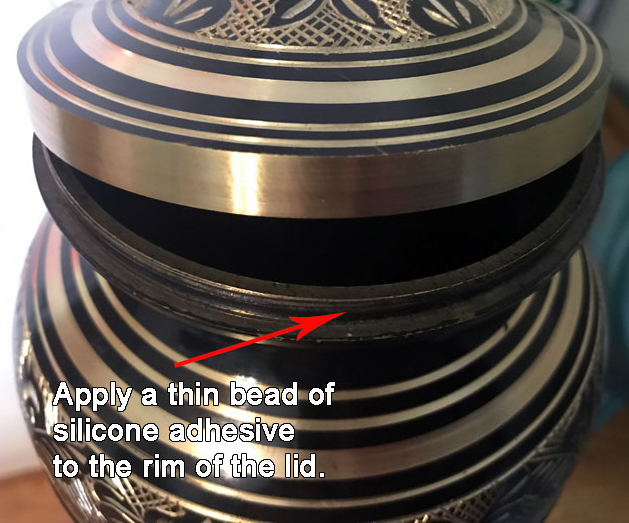Cremation urns serve as poignant vessels to hold the ashes of our loved ones, providing a tangible connection to cherished memories. While the choice of an urn and its design is deeply personal, there has been some debate over whether urns need to be sealed. In this article, we will explore the considerations surrounding the sealing of cremation urns and shed light on the potential benefits and drawbacks of this practice.
Understanding the Purpose of Sealing:
The decision to seal a cremation urn is often rooted in the desire to protect the ashes and maintain the integrity of the vessel. Sealing is typically done to prevent the accidental spillage of ashes or to create a more secure and permanent closure. Additionally, some individuals may choose to seal an urn to safeguard against environmental factors that could potentially affect the contents over time.

Sealing-a-Metal-Urn
Benefits of Sealing:
- Security and Stability: Sealing an urn provides an added layer of security, reducing the risk of accidental opening or spillage. This can be particularly important for those who plan to transport the urn or display it in various locations.
- Protection Against Environmental Elements: Depending on the material of the urn, environmental factors such as humidity or temperature changes could potentially impact the contents over an extended period. Sealing helps create a barrier, protecting the ashes from external elements.
- Preserving the Memorial: For those who choose to display the urn prominently in their homes, sealing can contribute to the longevity and preservation of the memorial. It minimizes the likelihood of dust or debris affecting the interior and ensures a lasting tribute.
Considerations Before Sealing:
- Personal Preferences: The decision to seal an urn is deeply personal and varies from individual to individual. Some may find comfort in the added security, while others may prefer a more accessible vessel for rituals or scattering ceremonies.
- Material of the Urn: The material of the urn plays a crucial role in determining whether sealing is necessary. Wooden and metal urns may be more prone to environmental factors, making sealing a more practical choice. However, ceramic or glass urns may not require sealing if they are adequately crafted and sealed during the manufacturing process.
- Accessibility for Rituals: If you plan to conduct rituals or ceremonies involving the ashes, it’s essential to consider the accessibility of the urn. Some may prefer an urn that can be easily opened for such occasions without the need for breaking a seal.
- Consultation with Funeral Professionals: Seek guidance from funeral professionals or crematorium staff when making decisions about sealing an urn. They can provide valuable insights based on their experience and knowledge of best practices.
In the end, the decision to seal a cremation urn is a personal one that depends on various factors, including individual preferences, the material of the urn, and intended use. Whether you choose to seal the urn or leave it unsealed, the most important aspect is to honor the memory of your loved one in a way that brings comfort and solace. Understanding the considerations surrounding sealing ensures that you make an informed choice that aligns with your wishes and respects the significance of the memorial.
